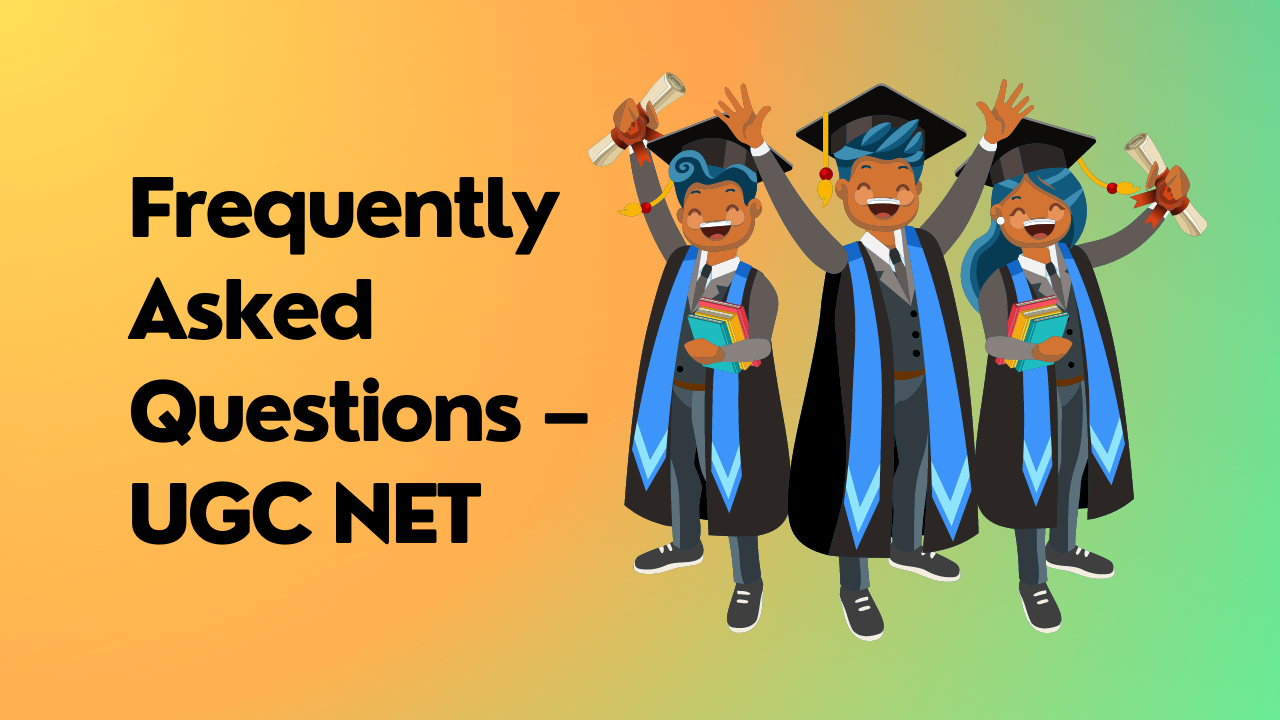
Are you planning to appear for the UGC NET exam? Are you seeking answers to common queries and concerns regarding the UGC NET examination? Look no further! In this comprehensive blog, we have compiled a list of frequently asked questions (FAQs) related to UGC NET to address all your doubts and provide you with the necessary information.
The UGC NET (University Grants Commission National Eligibility Test) is a highly esteemed examination conducted in India to determine the eligibility of candidates for the role of Assistant Professor and for the award of Junior Research Fellowship (JRF). It serves as a gateway for individuals aspiring to pursue a career in academia and research. With its vast scope and diverse subjects, UGC NET can seem overwhelming, especially for first-time test-takers.
To ease your journey toward success in the UGC NET, we have compiled a comprehensive list of FAQs that cover various aspects of the exam. Whether you are curious about the eligibility criteria, exam pattern, syllabus, or preparation strategies, this blog has got you covered. We have answered these frequently asked questions in detail to ensure you have a solid understanding of the UGC NET examination.
By going through this blog, you will gain valuable insights into the intricacies of UGC NET and be well-equipped to navigate the exam confidently. So, let's dive into the frequently asked questions and unlock the essential information you need to excel in the UGC NET examination!
Q1:- What is UGC NET?
A1:- UGC NET is a national-level eligibility test conducted in India to determine the eligibility of candidates for the role of Assistant Professor and for the award of Junior Research Fellowship (JRF). Candidates can qualify for this exam by taking the help of some of the best UGC NET Books.
Q2:- How to apply for UGC NET?
A2:-To apply for UGC NET, candidates need to visit the official website of the National Testing Agency (NTA) and fill out the online application form. They should provide personal details, educational qualifications, choose the desired exam centre, upload necessary documents, and pay the application fee.
Q3:- What is the qualification needed for UGC NET?
A3:- Candidates must have a postgraduate degree or its equivalent from a recognized university, with a minimum of 55% aggregate marks (50% for reserved categories). A relaxation of 5% is given to Ph.D. holders, OBC-NCL, SC, ST, PwD, and transgender candidates.
Q4:- What are the subjects for which the entrance exam is conducted?
A4:- The UGC NET exam is conducted for various subjects across disciplines. Some of the popular subjects for which the UGC NET entrance exam is conducted include:
Q5:- How many papers are there in the UGC NET exam?
The UGC NET examination consists of two papers: Paper 1 and Paper 2. Here's a breakdown of the papers:
Q6:- What is the validity of the UGC NET electronic certificate?
A6:- The validity of the UGC NET electronic certificate is forever.
Q7: Can UGC NET be cracked in the first attempt?
A7:-Yes, it is possible to crack UGC NET in the first attempt with dedicated preparation, a thorough study of the syllabus, and consistent practice of previous year question papers.
Q8:- Is UGC NET conducted in online or offline mode?
A8:- UGC NET has only been conducted in online mode as a computer-based test (CBT) since NTA began conducting the exam.
Q9:- Can I appear for UGC NET in multiple subjects?
A9:- Candidates can appear for the UGC NET exam in multiple subjects, but not simultaneously. If a candidate has completed their Master's degree in multiple subjects, they can apply for the UGC NET exam in those subjects. However, they must apply in different cycles, namely the June and December cycles of the UGC NET exam.
Q10:- Is there any negative marking in UGC NET?
A10:- UGC NET exam does not have a negative marking scheme. The candidates are awarded for correct answers but no mark deductions are made for incorrect answers.
Conclusion: In conclusion, this FAQ guide has provided valuable insights and answers to common queries about the UGC NET exam. Armed with this knowledge, you can approach your preparation with confidence. Remember to understand the exam pattern, and syllabus, and focus on both UGC NET Paper 1 and Paper 2. Utilise resources like previous year's question papers, study materials, and online mock tests to enhance your readiness. Stay consistent, maintain a disciplined study routine, and seek guidance whenever needed. With determination and hard work, you can excel in the UGC NET exam, open doors to academic opportunities, and embark on a rewarding career in teaching and research. Best of luck!
© 2024 Scanner Adda All rights reserved | Design by Shuchita Technologies